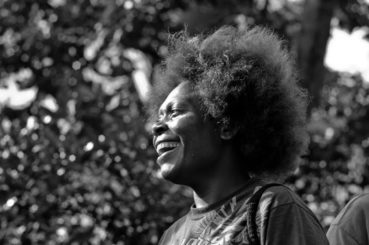
After these things the word of the LORD came to Abram in a vision, “Do not be afraid, Abram, I am your shield; your reward shall be very great.” But Abram said, “O Lord GOD, what will you give me, for I continue childless, and the heir of my house is Eliezer of Damascus?” And Abram said, “You have given me no offspring, and so a slave born in my house is to be my heir.”
But the word of the LORD came to him, “This man shall not be your heir; no one but your very own issue shall be your heir.” He brought him outside and said, “Look toward heaven and count the stars, if you are able to count them.” Then he said to him, “So shall your descendants be.” And he believed the LORD; and the LORD reckoned it to him as righteousness.
Then he said to him, “I am the LORD who brought you from Ur of the Chaldeans, to give you this land to possess.” But he said, “O Lord GOD, how am I to know that I shall possess it?” He said to him, “Bring me a heifer three years old, a female goat three years old, a ram three years old, a turtledove, and a young pigeon.”
He brought him all these and cut them in two, laying each half over against the other; but he did not cut the birds in two. And when birds of prey came down on the carcasses, Abram drove them away. As the sun was going down, a deep sleep fell upon Abram, and a deep and terrifying darkness descended upon him.
Then the LORD said to Abram, “Know this for certain, that your offspring shall be aliens in a land that is not theirs, and shall be slaves there, and they shall be oppressed for four hundred years; but I will bring judgment on the nation that they serve, and afterward they shall come out with great possessions. As for yourself, you shall go to your ancestors in peace; you shall be buried in a good old age. And they shall come back here in the fourth generation; for the iniquity of the Amorites is not yet complete.”
When the sun had gone down and it was dark, a smoking fire pot and a flaming torch passed between these pieces. On that day the LORD made a covenant with Abram, saying, “To your descendants I give this land, from the river of Egypt to the great river, the river Euphrates.” ~ Genesis 15:1-18
God made a covenant with Abram, promising him a land and innumerable descendants. The problem, however, was that he and his wife Sarai were old, well beyond the age of humanly being able to conceive. When Abram and Sarai hear the news that Sarai will conceive and bear a son, she laughs at this seemingly ludicrous word from God. What else can she do but laugh? They had been trying for years to have a son of their own. And now, when they are in their nineties God promises that this will happen? Laughter is the only reasonable response.
20th century author Kurt Vonnegut once said, “Laughter and tears are both responses to frustration and exhaustion. I myself prefer to laugh, since there is less cleaning up to do afterward.” Sarai’s laughter was birthed out of exhaustion and frustration after years of being denied what she had been longing for. Many of us identify all too closely with Sarai as we hear talk about justice and reconciliation. For centuries, racism and white supremacy have had their feet on the necks of our ancestors. They have enslaved us, incarcerated us, and killed us in the streets. When we hear God promise that these unjust systems will one day be dismantled, it is understandable why we might laugh, or cry. Like Blues duo Leroy Carr and Scrapper Black sung in 1928 on their hit record How Long, How Long Blues, we sing:
Heard the whistle blowin’, couldn’t see no train
Way down in my heart, I had an achin’ pain
How long, how long, baby how long
Sarai’s laughter of frustration and exhaustion turned into a laughter of shock and disbelief, as God did in her situation what only God could do. God gave Abram and Sarai a son, whom they named Isaac, which means ‘laughter’. In Genesis 21:6 Sarai says these words at Isaac’s birth, “God has brought laughter for me; everyone who hears me will laugh.” The hope we hold in the season of Advent is that God would turn our laughter of frustration into the laughter of joy. We long to see righteousness and justice reign in our streets. Our deep desire is to see the chains of oppression broken, so that we might tell future generations of God’s deliverance, and they might join in with our joyous laughter.
But for now, we laugh like Sarai. Wanting to believe, but finding it increasingly hard to do so. May God encourage us in this season of Advent by the story of Sarai, reminding us that the character of God is to perform the miraculous in seemingly impossible situations. Do it, Lord. This is our prayer.
Drew Jackson is the Co-Founder and Executive Director of TR-BE, an organization whose mission is to resource and train churches and the next generation to confront racially unjust systems and seek reconciliation through the lens of the gospel. Drew also serves as one of the pastors at GraceWay Community Church. He lives in Bethlehem, Pennsylvania with his wife Genay, and their two beautiful twin daughters Zora and Suhaila. This article first appeared in the TR-BE Advent Devotional.


